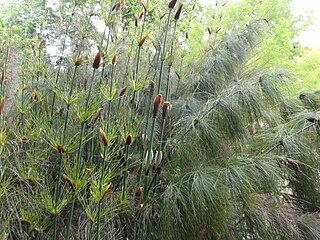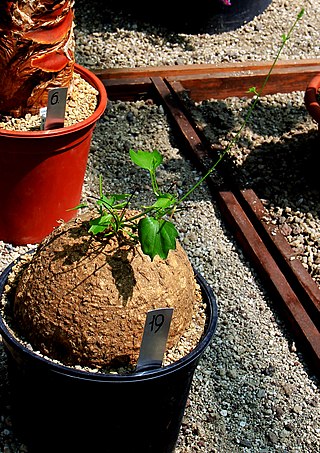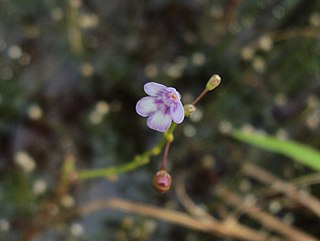
The Restionaceae, also called restiads and restios, are a family of flowering plants native to the Southern Hemisphere; they vary from a few centimeters to 3 meters in height. Following the APG IV (2016): the family now includes the former families Anarthriaceae, Centrolepidaceae and Lyginiaceae, and as such includes 51 genera with 572 known species. Based on evidence from fossil pollen, the Restionaceae likely originated more than 65 million years ago during the Late Cretaceous period, when the southern continents were still part of Gondwana.

Dovyalis is a genus of shrubs and small trees. Recent genetic evidence has shown the genus to belong to the family Salicaceae; formerly it was classified in the family Flacourtiaceae. The 15 species are native to Africa and southern Asia. Some are cultivated for their fruit.

Otto Stapf FRS was an Austrian born botanist and taxonomist, the son of Joseph Stapf, who worked in the Hallstatt salt-mines. He grew up in Hallstatt and later published about the archaeological plant remains from the Late Bronze- and Iron Age mines that had been uncovered by his father.
Marquesia is a genus of plant in family Dipterocarpaceae. It is native to Africa and can be found in Angola, Equatorial Guinea, Gabon, Tanzania, Zambia, Zaïre and Zimbabwe.

Ludwig Adolph Timotheus Radlkofer, was a Bavarian taxonomist and botanist.

Hans Schinz was a Swiss explorer and botanist who was a native of Zürich.
Listia is a genus of flowering plants in the family Fabaceae and the tribe Crotalarieae. Members of this genus are mainly found in southern Africa but some species can be found in central Africa. It was recently segregated from the genus Lotononis. Unlike other members of the Crotalarieae, members of the genus Listia have lupinoid root nodules.

Trochomeria is a genus of flowering plants belonging to the family Cucurbitaceae.
Thilachium is a genus of flowering plants belonging to the family Capparaceae.
Aporrhiza is a genus of flowering plants belonging to the family Sapindaceae.
Synandrodaphne is a genus of flowering plants belonging to the family Thymelaeaceae.

Caloncoba is a genus of flowering plants belonging to the family Achariaceae.
Cnestis is a genus of flowering plants belonging to the family Connaraceae.
Deinbollia is a genus of flowering plants belonging to the family Sapindaceae.
Englerodaphne is a genus of flowering plants belonging to the family Thymelaeaceae.

Dopatrium is a genus of flowering plants belonging to the family Plantaginaceae.
Lindackeria is a genus of flowering plants belonging to the family Achariaceae.
Pancovia is a genus of flowering plants belonging to the family Sapindaceae.
Sericostachys is a genus of flowering plants belonging to the family Amaranthaceae.
Dissotidendron is a genus of flowering plants belonging to the family Melastomataceae.







